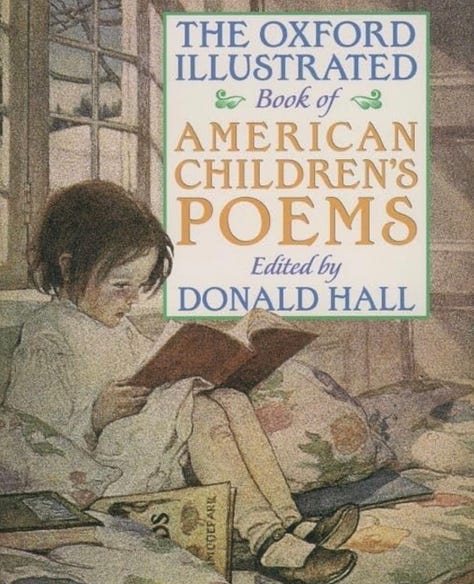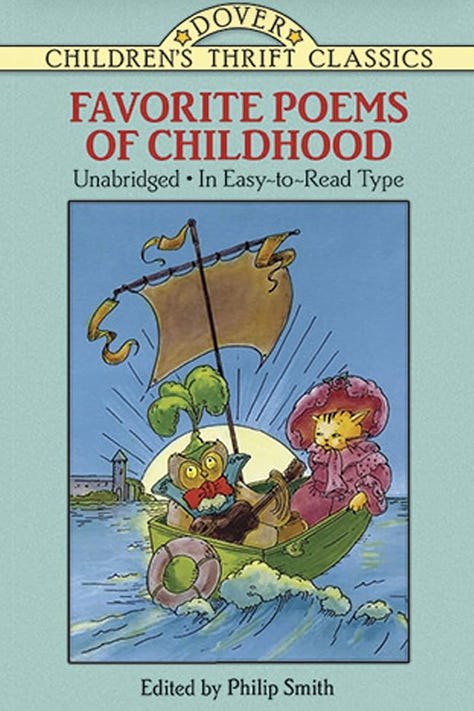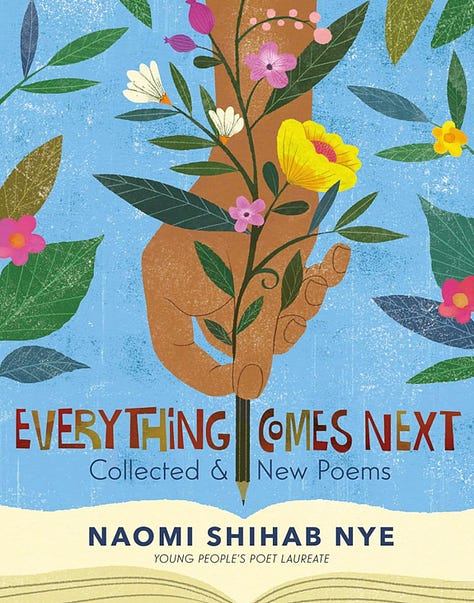Where does grief begin?
Sitting alone in the echoing hospital atrium, I felt a raw, sharp, stunning hurt. Stripped of explanation, it simply appeared. Had someone handed me their suffering, like an outworn coat? It didn’t fit. Too broad in the shoulders. Too heavy.
Embossed in gold on the black marble wall next to me were names. Donors. Maybe some of them had sat on this same bench, inert with pain, just as I was. Finally closing their eyes, summoning the will to stand, reaching into a purse for a mirror to touch up any evidence of tears.
The way back to the cancer unit was mapped in my muscles. Reception desk. Waiting room. Friction of shoes against carpet; squeak of rubber soles on tile. Hallway, nurse’s station. The doorway where I pause to take a deep breath before entering.
Poisons were still trickling into my husband’s blood through a port in his chest. The nurse squinted at a monitor, checking the drip rate.
“Almost done,” she said brightly.
Was this the day that grief first brushed up against me, saying Don’t I know you? Smiling, as a clever thief does when reaching into your pocket to steal what you love the most?
Almost done. For me, it was just beginning.
I took a picture of him that day, August 1, 2022. Today — October 7, 2024 — I study it, surprised at how many details I’ve forgotten.
The gray recliner. Blanket across his legs. Green canvas bag with the safety pin where the seam had started to rip. Bag of chips, bottle of Sprite, TV remote. Covid mask, still mandated inside the hospital.
Each hospital unit has its own palette. This room’s walls are painted two shades of Oncology Blue. In the photo, they’re drab, almost sullen. Not the restful tones — sky and water engaged in a quiet conversation — that I recall. I adjust the exposure. Better.
The image shifts. He nods, looks directly at me.
I set down the phone and walk away. In the kitchen, I grasp the edge of a counter to steady my hands. There must be an explanation. And once I get past Mary, calm down, you are not going crazy I realize that I’d inadvertently shot the picture in Live mode.
Damn you, Apple. Ambushed again. Live, Loop, Bounce. I want my pictures to sit still. This is not a kid’s birthday party.
It is, however, a birthday. He would have been seventy-one.
I’ve never seen a ghost. Nor have I entered a house and felt a sudden chill that couldn’t be explained by drafts, breezes, basements, or air conditioning. I once froze in a doorway, not because an invisible hand stopped me but because the owner was present during a realtor’s showing. No supernatural being has ever, to my knowledge, taken a deep breath and inhaled my soul.
But here is my husband. Back from the dead, if only for a moment. He’s here to celebrate his seventy-first birthday.
“No cake. No candles,” I say. It doesn’t occur to me until that moment that he will have sixty-nine of them, and no more.
I examine the picture again.
Pinching the screen, I zoom in on his face. The mask covers half of it. He wears a visored cap with the emblem of the Loons, our major-league soccer team. An embroidered wing rises upward from his creased forehead.
I can’t read his expression. Weariness, but something more. I zoom out, and swipe the picture back into motion. As he raises his head, the light shifts abruptly. I think of the moment in Bergman’s film The Seventh Seal, when chalk-white Death enters the house. The faces of those who are expecting him.
What about the faces of those who are left behind?
Left behind is how I feel.
The silence feels sentient: a presence in the house. I doze off repeatedly, my head hitting the keyboard of my laptop. jerking up, eyes dry and scratchy from staring at the screen. At six a.m., seeing that the night’s efforts have resulted in a half-page of deleted text and a block of semicolons, I close the screen and pull the quilt up to my chin.
Around eleven, I wake up and reach for my phone.
A long text from his sister.
How are u? She tells me how she is, and her family. Surgeries, physical therapy, a new grandchild, a son’s move to Florida, hurricanes.. She’s a force of nature herself. When did she fall? Two months old already? What type of cancer? I can’t keep up. My rap sheet of cards not sent, calls not made, invitations not extended, and promises unfulfilled grows longer. Thinking of you today on his heavenly birthday.
It’s as if I drop phone numbers and addresses into a box and shake them loose from names, illnesses, and identifying features. I’m a social offender of the worst kind.
Family is hard. Friendships are difficult. Of all the reasons I feel left behind, most start with me.
Each time a new spot appeared — a smudge on a clavicle or vertebra — the oncologist said Could be anything. We’ll keep an eye on it.
A door in our bedroom opens onto a second-floor deck. The boards have a moss-green patina. They need cleaning and sealing; I have done neither. This past summer was the wettest on record. It rained three, four, five times a week. The deck had to be dry before it could be washed. Another seventy-two hours to put down the first coat of finish, forty-eight for the second. Did it happen?
Ha.
Good-enough excuses became bad, became unforgivable, as I told myself that the house and the yard could wait. One summer went by. Winter. Spring. A second summer and another September, as I tried to figure out the logistics behind moving two chairs and a gas firepit five feet in one direction to properly clean the wood, then five feet to the opposite side to do the same. How to hoist a power washer fifteen feet from the ground, because the only other access is up a curving flight of stairs and down a hallway, through the door off of our second-floor bedroom?
Our bedroom is now my bedroom. The decaying deck is mine. I’m doing my best to internalize these pronouns as a way of organizing my new reality.
Chairs in pairs.
How idiotic, that such a childish rhyme should be central to this new state of being, widowhood.
It’s been exactly two years since anyone has sat in either of these two brown wicker chairs, watching flames dance. Or looked up at the stars, sipping heirloom rye whiskey or spiked hot chocolate. It was the night we celebrated his sixty-ninth birthday.
The boards are warped, cracked, and darkened. Some curl up at the the end. I don’t know if they can be salvaged.
Could be anything. I’ll keep an eye on it.
Except that I don’t.
September 2024. Incredibly, a drought. For the first time all year, the lawn needed to be watered. I could barely find the energy to move the sprinkler. To adjust the range and direction of the spray required exhausting calculations. The icons: round, square, off to both sides like double ponytails, shooting upwards like Old Faithful. Weeds have taken over the garden beds and pushed their way through the bricks of the pathway leading to a patio with another pair of chairs.
Sitting in the turquoise Adirondacks, we drank Negronis. As the moon rose, we listened to the gentle splash of the stream he’d built, altering its course many times, shaping its path over the rocks we’d brought home from the shores of Lake Superior. Decades of trips, backpacks full of smooth stones, endlessly given by the restless movements of an inland sea.
I replaced the pump twice. Tried to recalibrate his ingenious fountain. The water lurched and stalled, clogged with leaves. I disconnected everything, stopping the stream, silencing the water.
At the end of August, a storm dropped a limb from the big maple across the cedar planter he’d built, splintering it. It took out the fountain at the same time.
“Problem solved. You think Dad’s a little pissed at me?”
My daughter was sawing the branch into firewood-sized lengths.
“Mom, I’ll draw up some plans. We’ll rebuild things in the spring. Change it up. Dad had his own ways.”
“That he did. And took them with him.”
“It’ll be fine.”
My chainsaw-wielding daughter: designer, hydraulic engineer, changer of burnt-out bulbs, bringer of light. How could I not believe her?
“Dinner?”
As I said the word, I remembered it had been another Menards week. While she mowed the lawn, I could run out to a real grocery store.
I went through my options.
Whole Foods meant Prius-dodging, brake-slamming, shoppers pushing their carts in walking meditation, enclosed in bubbles of special air. Target: why shop at a place that locks deodorant behind glass? Stores with navigable lots and courteous drivers are all in the suburbs. Two nearby markets jack up prices for the Summit Avenue carriage trade. While the choices at Menards aren’t ideal — they carry a brand of cheese, Shullhill, that I always misread as Skull-kill — I rely on them for basics, like giardinaira and salted nut rolls.
“Sure. What are we having?”
What could I serve? Cradled in my refrigerator door, two eggs. One apiece, boiled? In the basement, potatoes, the small purple kind. Roasting them with olive oil and rosemary would take an hour. Peanut butter, Rice Chex, chocolate chips tossed in confectioner’s sugar: puppy chow? Nope, that would take even longer. Ice cream? Granola? Canned soup?
“Let’s order pizza,” I said.
Two more wicker chairs, white, on the front porch. He was as skilled at cooking as he was at everything else. His specialties were beef tenderloin and crème brûlée but he —
It was too hard. Everything came in pairs. I’m what’s left when half a pair is gone.
Loveseats don’t count. Mini curls up next to me, her six-pound body taking up the space of one human. I’m watching TV again, catching up on the shows we watched together. Slow Horses: we watched the first two seasons together; now, it’s in its fourth. It’s the second-to-last episode. The final scene leaves me stunned, my mouth open in shock.
When I can finally speak, I say, Did you see that coming? And then, We’ll watch it again.
Carnage, small-d death. They can’t kill off River Cartwright. Except that they could.
The chessboard and Max von Sydow. Or that five-minute satire, the badminton game, that they showed all the time at the Uptown. He thought it was hilarious; I saw it as tiresome. A better death scene was Bambi vs. Godzilla: merciful, short, satisfying.
Could be anything.
After the nurse untethers him, we walk slowly to the elevator. About to press the button, I realize that today’s muscle memory has failed. Are we on level D today? I forgot to take a picture!
I pray it isn’t level H, with its open roof and baking sun. Or C, three-quarters of the spaces reserved for doctors. D is the sweet spot. It’s the eye of the storm, the calm center of that tight helix before the melee begins: hospital workers at the end of their shifts, racing blindly, cutting people off. It’s 2:55. They’re done at three. Will we beat them? Not if we’re parked on G.
“We’re on D,” I say. The elevator doors open, and I exhale, feeling lighter. A good day; a blessing.
We’ll keep an eye on it.
I have some exciting news for you. Last summer, I introduced you to
, the brilliant poet and professor who writes the Substack, teaches at NYU, and offers a yearlong MFA-level writing course, Conscious Writers Collective. She generously offered to help stock my Little Free Library with books of poetry by donating an amount for each person who signed up through this link.Because Poetry is Life.



It has been almost a year since I sent out my first Substack post. I started with no subscribers and no followers. Since then, more than twenty-four hundred wonderful readers have subscribed to Writer, interrupted. Many of you have shown that you value my work by choosing to pay for a subscription. Your generosity means the world to me.
I’ll be making a number of changes to Writer, interrupted in the weeks to come. You’ll see a fresh look. Now that Substack is offering new ways to engage with readers, I can’t wait to explore them. Please send me your ideas!
The Comments section is where Writer, interrupted really comes alive. I love hearing from readers. I read and respond to every single comment, and some deep and thoughtful conversations take place here. It’s a safe place to open up and tell your stories. I do not tolerate trolls.
All subscribers receive my stories in your inbox, can read and comment on all posts and join a vibrant community. To further support my work and allow me to maintain the quality of what I write, consider a paid subscription. You’ll get the full experience, including discussion threads and more. It’s a marvelous chance to share and meet other engaged readers. Your financial support allows me, for the first time in my life, the dignity that comes with receiving an income from my writing, the work I love most in this world.
Mary xo





It’s been ten years for me. Still can’t…. Many of the things you say. Thanks. Sharing somehow helps. I too have a wonderful, strong supportive daughter. All the best
Mary, deepest thanks… this is an especially powerful and illuminating post about your grief for a lost spouse, so many searing shards of memory. Losing one’s husband is one of the greatest fears for older women, like me, who have been married for decades. I’ll be posting soon on this topic (“How will I cope if I lose my spouse/partner”) and referring to this essay.